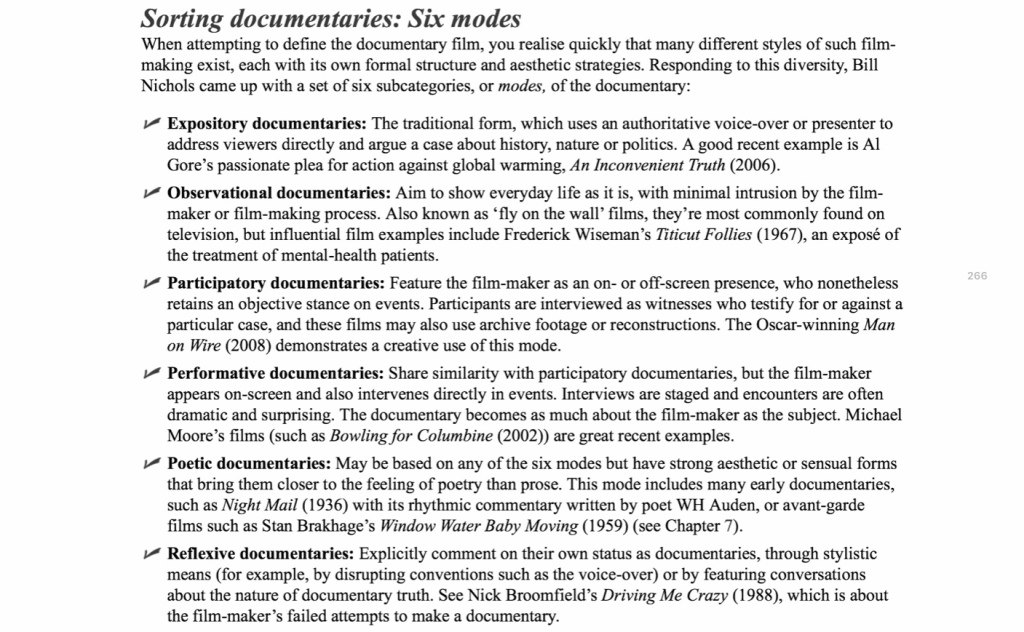Expository documentaries:
The traditional form, using a voice-over/presenter to directly address viewers and discuss a particular subject matter. Also known as ‘the voice of god’. How we most often think of a documentary. Emphasises verbal commentary and argumentative logic, usually through a narrator. It follows a logical argument and it offers a right or ‘proper answer. David Attenborough nature documentaries is what Nichols would call expository, as facts are presented to us, the audience.
Observational documentaries:
Aims to show every-day life, un-obstructed by the filmmaker. Also known as ‘window on the world’. Cinema Verity emerged in the late 1950s-early 1960’s. This attempted to capture objective reality. So the filmmaker is a neutral observer of real life. They remain hidden behind the camera and is ignored, neither changing or influencing the events being captured. Since nothing is staged for the camera, it rushes to keep up with the action, often resulting in rough, shaky footage. Sometimes known as ‘fly on the wall’ documentary. This would be something like ‘police interceptors’.
Participatory documentaries:
Unlike observational, participatory mode has direct engagement between the filmmaker and the subjects, so the filmmaker becomes parts of the events being recorded. Their impacts on the events being recorded is acknowledged, and that could even be the point of it. Where the person making the documentary is pat of the documentary. Reggie Yates is a participatory filmmaker, where their personality is a part of the film.
Performative documentaries:
Emphasises the subject nature of the documentarian as-well as acknowledging the subjective reading of the audience. In a performative documentary, the documentary filmmaker is kind of the point. Such as Louis Theroux. The result is because he is interviewing them, provoking reactions, making the interview go a certain way. Emphasises the emotional impact on the audience.
Poetic documentaries:
Poetic mode is where moves away from objective reality to tray and grasp at “an inner truth”. It favours mood, tone and texture over accurate representations. It is literally poetic or metaphorical in its representation of something.
Reflexive documentary:
Reflexive mode is where Acknowledges the constructed nature of documentary and sort of flaunts it, in a way. A reflexive documentary offers a truth rather then the truth. Sometimes used for when the absolute truth of a situation can’t be known, e.g the last hours of Hitler’s life. The location could be exactly correct, but the dialogue could only be an approximation.

You must be logged in to post a comment.